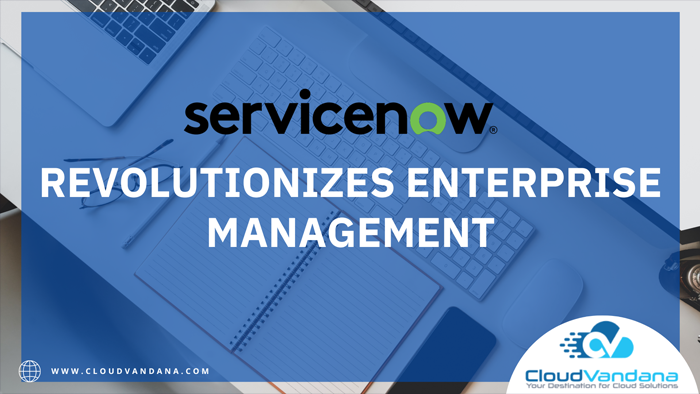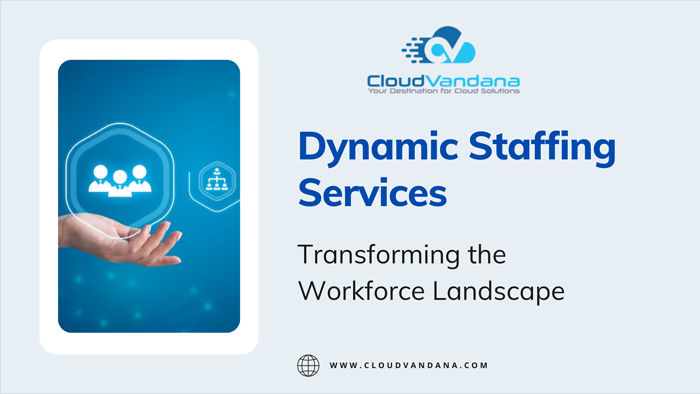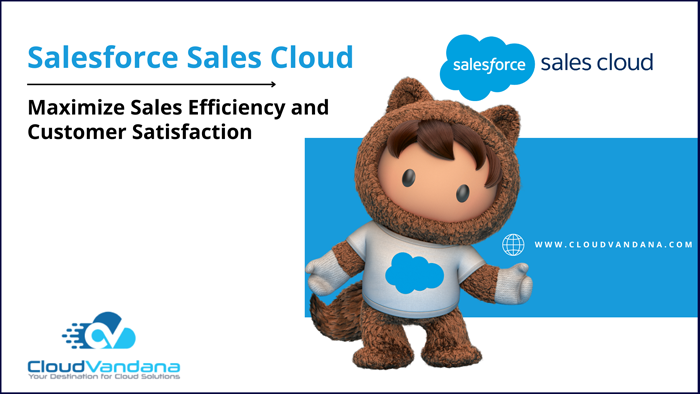Salesforce Launches Einstein Copilot

In the ever-evolving landscape of artificial intelligence, Salesforce emerges as a trailblazer with the launch of Einstein Copilot and Data Cloud. These innovative solutions mark a significant milestone in AI integration, empowering businesses to harness the power of unstructured data like never before. The Need for Innovation In today’s digital age, data is ubiquitous and multifaceted, spanning emails, PDFs, social media posts, and more. However, most of this data exists in unstructured formats, presenting a formidable challenge for organizations seeking actionable insights. The exponential growth of unstructured data compounds this challenge, necessitating innovative solutions to unlock its value. Introducing Einstein Copilot and Data Cloud Salesforce’s Einstein Copilot and Data Cloud represent a formidable response to the burgeoning complexities of unstructured data. By seamlessly integrating AI capabilities with Salesforce’s robust platform, these solutions empower organizations to navigate the vast expanse of unstructured data with precision and efficiency. 1. Einstein Copilot: Revolutionizing Data Navigation Einstein Copilot serves as a beacon of innovation, offering users unparalleled access to actionable insights buried within unstructured data. Through sophisticated AI algorithms, Einstein Copilot enables users to search, retrieve, and analyze vast repositories of unstructured data with ease. Whether preparing for customer meetings or addressing customer inquiries, Einstein Copilot equips users with the insights needed to drive meaningful outcomes. Enhanced Customer Service: By leveraging Einstein Copilot, businesses can deliver personalized and accurate responses to customer inquiries, fostering satisfaction and loyalty. Empowered Sales Teams: Sales representatives can harness Einstein Copilot to glean valuable insights from emails, phone calls, and meeting notes, enabling more informed decision-making and personalized engagements. Actionable Marketing Insights: Marketers gain unprecedented access to consumer intent by analyzing unstructured survey data and social media posts. This deeper understanding enables targeted campaigns and enhanced customer engagement. 2. Data Cloud: Powering AI-driven Insights At the heart of Salesforce’s AI revolution lies Data Cloud, a robust platform designed to ingest, transform, and analyze unstructured data seamlessly. By leveraging Data Cloud’s advanced capabilities, organizations can unlock the full potential of their data assets, driving innovation and driving growth. Unstructured Data Pipeline: Data Cloud facilitates the ingestion of unstructured data, enabling organizations to capture valuable insights from diverse sources. Transformation and Analysis: Through Data Cloud, teams can transform unstructured data into actionable insights, leveraging AI algorithms to derive meaningful conclusions. Secure Storage and Retrieval: Data Cloud’s secure infrastructure ensures the seamless storage and retrieval of data, safeguarding sensitive information while enabling dynamic analysis and decision-making. The Path Forward: Empowering Innovation As organizations embrace the transformative potential of Einstein Copilot and Data Cloud, the possibilities for innovation are limitless. By leveraging AI-driven insights, businesses can drive operational efficiency, enhance customer experiences, and unlock new avenues for growth in an increasingly competitive landscape. Conclusion: Embracing the Future of AI In conclusion, Salesforce’s Einstein Copilot and Data Cloud represent a paradigm shift in AI integration, empowering organizations to unlock the full potential of unstructured data. By harnessing the power of AI-driven insights, businesses can navigate the complexities of the digital age with confidence, driving innovation and driving growth in an increasingly data-driven world. As businesses embark on this transformative journey, the future of AI integration has never looked brighter. The introduction of Salesforce’s Einstein Copilot marks a significant advancement in AI-powered assistance within the Salesforce ecosystem. CloudVandana, a leading Salesforce consulting company in India, continues to pioneer innovative solutions for its clients; the integration of Einstein Copilot promises to revolutionize how businesses engage with their Salesforce platforms. With this powerful tool, CloudVandana is poised to enhance efficiency, drive productivity, and deliver exceptional value to its clients across various industries, solidifying its position as a trusted partner in the ever-evolving cloud technology landscape. Call us now and share your requirements with us. Request a Free Consultation YOU MIGHT ALSO LIKE
ServiceNow Revolutionizes Enterprise Management With The Latest Platform

Optimize your enterprise management with ServiceNow‘s comprehensive suite of tools. Streamline IT service management, HR processes, customer service, and security operations for enhanced efficiency and productivity. Unlock your organization’s potential with ServiceNow’s unified platform. Understanding the Evolution of Enterprise Management Enterprise management encompasses various activities to optimize organizational processes, enhance collaboration, and drive innovation. Traditionally, managing complex workflows and diverse business functions posed significant challenges, often resulting in inefficiencies, delays, and communication bottlenecks. Legacy systems and disparate tools further compounded these issues, hindering agility and inhibiting scalability. Recognizing the need for a unified approach to enterprise management, ServiceNow emerged as a pioneering force, revolutionizing how organizations orchestrate their operations. Founded on simplicity, flexibility, and scalability principles, ServiceNow provides a centralized platform that empowers businesses to automate workflows, streamline service delivery, and drive digital transformation. The Power of ServiceNow: A Comprehensive Enterprise Solution At the core of ServiceNow‘s value proposition lies its ability to integrate disparate processes, departments, and systems into a unified ecosystem. Whether it’s IT service management, human resources, customer service, or enterprise security, ServiceNow offers a suite of modules designed to address diverse organizational needs. By leveraging a standard data model and a user-friendly interface, ServiceNow enables seamless collaboration, real-time insights, and data-driven decision-making across the enterprise. 1. IT Service Management (ITSM): In today’s digital landscape, IT is the backbone of organizational operations, driving innovation, supporting business functions, and ensuring data security. ServiceNow’s ITSM module equips IT teams with the tools to streamline incident management, automate change processes, and enhance service delivery. From ticketing systems to self-service portals, ServiceNow enables IT departments to resolve issues promptly, minimize downtime, and optimize resource allocation. 2. Human Resources (HR) Service Delivery: Managing human capital effectively is paramount to organizational success. ServiceNow’s HR Service Delivery module empowers HR professionals to streamline employee onboarding, manage HR cases, and facilitate workforce planning. By digitizing HR processes and providing employees with self-service capabilities, ServiceNow enhances employee satisfaction, reduces administrative overhead, and fosters a culture of transparency and collaboration. 3. Customer Service Management (CSM): In an era defined by customer-centricity, delivering exceptional service experiences is essential for business growth and customer loyalty. ServiceNow’s CSM module enables organizations to centralize customer interactions, resolve issues proactively, and personalize service delivery. ServiceNow helps businesses anticipate customer needs, drive satisfaction, and build lasting relationships by integrating customer data, automating service requests, and analyzing customer feedback. 4. Enterprise Security Operations: As cyber threats evolve in sophistication and scale, organizations must prioritize cybersecurity to safeguard sensitive data and mitigate risks. ServiceNow’s Security Operations module provides a comprehensive threat detection, incident response, and vulnerability management platform. By aggregating security data from disparate sources, automating incident workflows, and orchestrating response activities, ServiceNow enables organizations to detect and respond to security threats rapidly, minimizing potential impact and strengthening their security posture. Unlocking Organizational Potential Through ServiceNow The adoption of ServiceNow represents more than just a technological upgrade; it signifies a strategic investment in organizational excellence and agility. By consolidating siloed processes, automating routine tasks, and fostering cross-functional collaboration, ServiceNow empowers organizations to unlock their full potential and achieve transformative outcomes. 1. Enhanced Efficiency and Productivity: ServiceNow’s automation capabilities streamline manual processes, reducing operational overhead and enabling employees to focus on value-added tasks. By eliminating redundant activities and minimizing human error, ServiceNow accelerates service delivery, enhances productivity, and drives operational efficiency across the enterprise. 2. Improved Visibility and Insights: Centralizing data and analytics within the ServiceNow platform gives organizations real-time visibility into key performance metrics, trends, and operational insights. By leveraging customizable dashboards, reporting tools, and predictive analytics, organizations can make informed decisions, identify areas for improvement, and drive continuous optimization. 3. Agility and Innovation: ServiceNow’s modular architecture and extensibility empower organizations to adapt and innovate in response to evolving business needs and market dynamics. Whether deploying new applications, integrating third-party solutions, or scaling operations globally, ServiceNow provides organizations the flexibility and agility to stay ahead of the curve and drive sustainable growth. Conclusion: Embracing the Future of Enterprise Management Organizations must embrace innovation and digital transformation to thrive in an increasingly interconnected and competitive business landscape. ServiceNow stands at the forefront of this evolution, offering a holistic enterprise management and optimization platform. By unifying processes, empowering employees, and driving continuous improvement, ServiceNow enables organizations to unlock their full potential, achieve operational excellence, and shape the future of work. As businesses navigate the complexities of the digital age, those harnessing ServiceNow’s power will emerge as leaders in their respective industries, driving innovation, fostering collaboration, and delivering exceptional value to customers and stakeholders alike. In the journey towards organizational excellence, ServiceNow catalyzes transformation, empowering organizations to realize their vision and seize new opportunities in the dynamic landscape of enterprise management. CloudVandana epitomizes excellence as a ServiceNow consulting company in India, revolutionizing enterprise management through its innovative approaches and deep-rooted expertise. With a steadfast commitment to delivering tailored solutions and driving business outcomes, CloudVandana redefines how organizations harness the power of the ServiceNow platform. Get in touch with us and reach your goal faster. Request a Free Consultation YOU MIGHT ALSO LIKE
Dynamic Staffing Services: Transforming the Workforce Landscape

In today’s rapidly evolving business environment, the demand for dynamic staffing services is at an all-time high. As companies navigate through uncertainties and seek agility in their operations, the traditional model of permanent hiring is being complemented, and often supplanted, by the flexible solutions offered by dynamic staffing services. In this blog, we will delve into the essence of dynamic staffing services, their benefits, challenges, and their pivotal role in shaping the future of work. Understanding Dynamic Staffing Services: Dynamic staffing services, contingent or flexible staffing, provide temporary or project-based workers to organizations to meet fluctuating demands and specific skill requirements. These services encompass a spectrum of staffing solutions, including temporary, contract, temp-to-hire, and project-based staffing. Unlike traditional permanent hiring, dynamic staffing allows companies to scale their workforce up or down based on business needs without the long-term commitment associated with permanent employment. The Benefits of Dynamic Staffing Services: Flexibility: One of the critical advantages of dynamic staffing services is the flexibility they offer to organizations. Businesses can quickly adapt to changing market conditions, seasonal fluctuations, or project demands by augmenting their workforce with temporary or contract workers. Cost-Effectiveness: Dynamic staffing services help companies optimize their labor costs by eliminating expenses associated with permanent hiring, such as employee benefits, training, and severance pay. Organizations can engage temporary workers for specific projects or assignments without incurring long-term financial obligations. Access to Specialized Skills: Companies often require specialized skills to remain competitive in today’s competitive landscape. Dynamic staffing services provide access to a diverse talent pool with expertise in various domains, enabling organizations to fill skill gaps and execute projects efficiently. Reduced Time-to-Hire: Recruiting and onboarding permanent employees can be a time-consuming process. Dynamic staffing services streamline the hiring process by providing access to pre-screened candidates who are ready to contribute immediately, helping companies reduce their time-to-hire and accelerate project timelines. Scalability: Whether scaling up during peak seasons or downsizing during lean periods, dynamic staffing services empower organizations to adjust their workforce size quickly and efficiently, ensuring optimal resource utilization and operational agility. Challenges and Considerations: While dynamic staffing services offer numerous benefits, they also present certain challenges and considerations that organizations must address: Integration: Integrating temporary or contract workers seamlessly into the existing team culture and workflow can be challenging. Effective communication, clear expectations, and proper onboarding processes are essential to ensure collaboration and productivity. Compliance and Legal Issues: Employers must navigate various legal and compliance considerations when engaging temporary workers, including wage and hour laws, tax implications, and worker classification (e.g., independent contractors vs. employees). Failure to comply with regulations can result in legal consequences and financial penalties. Talent Retention: Temporary workers may lack the same commitment and loyalty as permanent employees, leading to higher turnover rates. Organizations must prioritize employee engagement, recognition, and career development opportunities to mitigate this risk, regardless of employment status. Strategic Planning: While dynamic staffing services offer flexibility, organizations must develop strategic workforce planning strategies to ensure alignment with long-term business objectives. Balancing temporary and permanent staffing requires careful analysis of workforce dynamics, market trends, and project requirements. The Future of Work: Embracing Agility and Innovation As we look ahead, the future of work will be characterized by unprecedented agility, innovation, and adaptability. Dynamic staffing services will play a central role in this transformation, enabling organizations to thrive in an increasingly dynamic and competitive landscape. Key trends shaping the future of dynamic staffing services include: Embrace of Remote Work: The COVID-19 pandemic accelerated the adoption of remote work arrangements, prompting organizations to embrace virtual collaboration and remote staffing solutions. Dynamic staffing services will continue to evolve to support remote work models, enabling companies to access global talent pools and overcome geographic barriers. Rise of Gig Economy Platforms: The gig economy, characterized by short-term freelance or contract work, is experiencing rapid growth across industries. Gig economy platforms and online marketplaces are revolutionizing how companies source and engage talent, offering on-demand access to specialized skills and expertise. Focus on Skills-based Hiring: As technology continues to disrupt traditional job roles and industries, the emphasis is shifting towards skills-based hiring rather than conventional credentials or degrees. Dynamic staffing services will be pivotal in matching individuals with the right skills and competencies to meet evolving job requirements. Investment in Talent Development: In an era of continuous learning and upskilling, organizations must invest in talent development initiatives to cultivate a highly skilled and adaptable workforce. Dynamic staffing services can facilitate talent mobility, enabling individuals to gain diverse experiences and build transferable skills across projects and industries. Conclusion: Dynamic staffing services represent a paradigm shift in how organizations source, deploy and manage their workforce. By embracing flexibility, innovation, and strategic workforce planning, companies can leverage dynamic staffing services to drive operational excellence, enhance agility, and capitalize on emerging opportunities in the ever-evolving marketplace. As we navigate the complexities of the future of work, dynamic staffing services will continue to catalyze growth, innovation, and organizational success. In summary, the evolution of dynamic staffing services heralds a new era of workforce transformation, where adaptability and resilience are the keys to sustainable success in an increasingly dynamic and unpredictable business environment. CloudVandana has revolutionized the workforce landscape in India with its dynamic staffing solutions. By embracing innovation and personalized strategies, it has effectively connected businesses with top talent, driving growth and success. Committed to ongoing innovation and inclusivity, CloudVandana remains a driving force in shaping the future of work in India. Call Now for a free consultation. Request a Free Consultation YOU MIGHT ALSO LIKE
Maximizing Sales Efficiency and Customer Satisfaction with Salesforce Sales Cloud

Salesforce Sales Cloud is a robust platform that empowers businesses to achieve these objectives. From lead management to customer retention, Sales Cloud provides a comprehensive suite of features designed to optimize sales operations and elevate the customer experience. Introduction to Salesforce Sales Cloud Salesforce Sales Cloud is a cloud-based CRM (Customer Relationship Management) platform that enables businesses to manage their sales processes efficiently and engage with customers across every touchpoint of the sales journey. With its intuitive interface, robust functionality, and scalability, Sales Cloud empowers organizations of all sizes to streamline sales operations, gain valuable insights, and foster meaningful customer relationships. Key Features and Capabilities Lead Management: Sales Cloud enables businesses to capture, track, and nurture leads effectively. Through customizable lead capture forms, automated lead assignment rules, and lead scoring mechanisms, sales teams can prioritize their efforts and focus on high-potential opportunities. Integration with marketing automation tools further enhances lead generation and qualification processes. Opportunity Management: With the Sales Cloud, organizations can manage their sales pipeline with precision. Sales representatives can track opportunities from initial contact to closure, monitor deal stages, forecast revenue, and collaborate seamlessly with team members. Customizable opportunity layouts and automated workflows ensure that sales processes align with organizational objectives and best practices. Contact and Account Management: Sales Cloud centralizes customer information, providing a 360-degree view of contacts and accounts. Sales representatives can access detailed profiles, communication histories, and buying preferences to personalize interactions and deliver exceptional customer experiences. Integration with social media platforms and external data sources enriches customer profiles and facilitates targeted engagement strategies. Sales Analytics and Reporting: Sales Cloud offers robust analytics and reporting capabilities that empower businesses to gain actionable insights into their sales performance. With customizable dashboards, real-time metrics, and predictive analytics, sales leaders can identify trends, track key performance indicators, and make data-driven decisions to optimize sales strategies and drive revenue growth. Mobile Access: Sales Cloud’s mobile app enables sales professionals to stay productive and connected on the go. Whether they’re attending client meetings, responding to leads, or updating opportunity statuses, mobile access ensures that sales teams have the tools they need to succeed anytime, anywhere. The app’s offline capabilities ensure uninterrupted productivity, even in areas with limited connectivity. Benefits of Salesforce Sales Cloud Improved Sales Productivity: By automating routine tasks, providing a unified view of customer data, and facilitating collaboration across teams, Sales Cloud empowers sales professionals to focus on high-value activities that drive revenue growth. Time-saving features such as email templates, task queues, and opportunity tracking streamline workflows and enhance productivity. Enhanced Customer Engagement: Sales Cloud enables businesses to deliver personalized and consistent experiences at every customer journey stage. With access to comprehensive customer profiles, historical interactions, and intelligent recommendations, sales representatives can engage prospects and customers in meaningful conversations that resonate with their needs and preferences. Increased Revenue and ROI: By optimizing sales processes, improving lead conversion rates, and accelerating deal cycles, Sales Cloud helps organizations maximize their revenue potential and achieve a higher return on investment. Advanced forecasting capabilities, revenue tracking tools, and pipeline analytics empower sales leaders to identify opportunities, mitigate risks, and drive sustainable business growth. Scalability and Flexibility: Sales Cloud scales effortlessly to accommodate your evolving business needs, whether a small startup or a multinational corporation. With customizable workflows, extensible APIs, and a vibrant ecosystem of third-party integrations, organizations can tailor Sales Cloud to their unique requirements and seamlessly adapt to changing market dynamics. Data Security and Compliance: Salesforce prioritizes data security and compliance, providing industry-leading measures to safeguard sensitive information and customer privacy. With robust encryption, role-based access controls, and compliance certifications such as GDPR and HIPAA, Sales Cloud ensures that businesses can always trust their data to remain secure and compliant. Conclusion In an era of digital transformation and customer-centricity, Salesforce Sales Cloud emerges as a game-changer for businesses seeking to drive sales efficiency, foster customer relationships, and stay ahead of the competition. With its comprehensive features, scalable architecture, and commitment to innovation, Sales Cloud empowers organizations to unlock new opportunities, achieve sustainable growth, and thrive in today’s dynamic marketplace. From lead management to revenue forecasting, Sales Cloud equips sales professionals with the tools they need to succeed in a rapidly evolving business landscape. By harnessing the power of data, automation, and intelligent insights, businesses can elevate their sales operations, exceed customer expectations, and embark on a journey of sustained success with Salesforce Sales Cloud. CloudVandana is a premier Salesforce consulting firm in India, renowned for its Salesforce Sales Cloud implementation expertise. With a dedication to innovation and client satisfaction, CloudVandana is the trusted partner for businesses seeking transformative solutions in the digital age. Call Now. Request a Free Consultation YOU MIGHT ALSO LIKE
Unlocking the Power of Oracle: Revolutionizing Modern Businesses

Oracle is a global leader in cloud applications and platform services, empowering businesses worldwide with cutting-edge technologies. In this comprehensive guide, we delve into the transformative power of Oracle and how it revolutionizes modern companies across industries. Understanding Oracle: A Foundation for Innovation Oracle, founded in 1977, has emerged as a pioneering force in enterprise technology. The company’s diverse portfolio encompasses cloud applications, database systems, middleware, and infrastructure solutions. Oracle‘s commitment to innovation is evident in its continuous investments in research and development, driving breakthroughs in AI, machine learning, blockchain, and more. The Oracle Advantage: Key Features and Benefits Scalability and Performance: Oracle offers scalable solutions capable of handling massive volumes of data while delivering unparalleled performance and reliability. Security and Compliance: With robust security features and compliance certifications, Oracle ensures data integrity and regulatory adherence, instilling trust among users. Integration and Interoperability: Oracle’s comprehensive suite of products enables seamless integration with existing systems, fostering interoperability and enhancing operational efficiency. AI and Machine Learning: Leveraging advanced AI and machine learning capabilities, Oracle empowers businesses to derive actionable insights, automate processes, and drive informed decision-making. Oracle Cloud: Empowering Digital Transformation Oracle Cloud Infrastructure (OCI): OCI provides a secure, high-performance cloud computing environment, offering a wide range of services, including computing, storage, networking, and databases. Oracle Cloud Applications: Oracle’s suite of cloud applications spans enterprise resource planning (ERP), customer relationship management (CRM), human capital management (HCM), supply chain management (SCM), and more, enabling organizations to streamline processes and enhance productivity. Autonomous Database: Oracle’s Autonomous Database leverages AI and machine learning to automate administrative tasks, optimize performance, and minimize downtime, empowering businesses to focus on innovation rather than maintenance. Industry-Specific Solutions: Tailored for Success Oracle serves diverse industries, including retail, healthcare, financial services, manufacturing, and telecommunications, offering tailored solutions to address specific challenges and opportunities. From personalized customer experiences to supply chain optimization and predictive analytics, Oracle enables organizations to unlock new levels of agility, efficiency, and innovation in today’s dynamic business landscape. The Future of Oracle: Driving Continued Innovation Oracle remains committed to pushing the boundaries of technology, driving innovation, and empowering businesses to thrive in an increasingly digital world. With ongoing advancements in AI, machine learning, blockchain, and other emerging technologies, Oracle is poised to shape the future of enterprise technology and drive transformative change across industries. Conclusion: Oracle stands at the forefront of innovation, empowering businesses worldwide to unlock new opportunities, drive growth, and stay ahead in today’s competitive landscape. With its comprehensive suite of cloud applications, robust infrastructure, and cutting-edge technologies, Oracle continues to redefine the way organizations operate, innovate, and succeed in the digital age. As businesses embrace digital transformation, Oracle remains a trusted partner, enabling them to unleash their full potential and achieve new heights of success in the modern era. Embrace the power of Oracle and embark on a journey of innovation and growth like never before. CloudVandana is committed to unlocking the full potential of Oracle technologies to revolutionize modern businesses. Our expertise and client-centric approach empower organizations to drive efficiency, agility, and growth. We’re shaping the industry’s future with Oracle through innovation and meaningful partnerships. Let’s redefine success in the digital age together. Call Now. Request a Free Consultation YOU MIGHT ALSO LIKE
Unlock Unlimited Marketing Success: Harness Salesforce for Marketers

Unlock the power of Salesforce for marketers! Discover how to streamline campaigns, analyze data, and drive engagement with our comprehensive guide. Elevate your marketing strategy with Salesforce’s innovative tools and solutions today. In the dynamic landscape of digital marketing, staying ahead requires leveraging the right tools and platforms. One platform that has revolutionized how marketers engage with their audience is Salesforce. Renowned for its robust customer relationship management (CRM) capabilities, Salesforce offers myriad features tailored to marketers’ needs. This comprehensive guide delves into the world of Salesforce for marketers, exploring its essential functionalities, benefits, and best practices for optimizing marketing efforts. Understanding Salesforce for Marketers Salesforce is more than just a CRM platform; it’s a comprehensive ecosystem that empowers marketers to streamline their campaigns, personalize customer interactions, and drive revenue growth. At its core, Salesforce provides a centralized hub for managing customer data, enabling marketers to gain valuable insights into their audience’s preferences, behaviors, and buying patterns. Key Features and Functionality Lead Management: Salesforce allows marketers to capture, track, and nurture leads throughout the customer journey. With customizable lead scoring models and automated workflows, marketers can precisely prioritize high-value leads and guide them through the sales funnel. Email Marketing: The platform offers robust marketing capabilities, enabling marketers to create personalized email campaigns, track engagement metrics, and analyze real-time performance. Integration with Salesforce CRM ensures seamless synchronization of customer data, ensuring that every interaction is tailored to individual preferences. Marketing Automation: Automation is a cornerstone of modern marketing, and Salesforce excels. Marketers can automate repetitive tasks, such as lead nurturing, campaign scheduling, and customer follow-ups, freeing up time to focus on strategic initiatives and creative endeavors. Data Analytics: With Salesforce Einstein Analytics, marketers can unlock the power of predictive analytics and AI-driven insights. By analyzing vast amounts of data, marketers can identify trends, anticipate customer needs, and make data-driven decisions to optimize marketing campaigns and drive business growth. Social Media Integration: Salesforce integrates seamlessly with popular social media platforms, enabling marketers to engage with their audience across multiple channels. From social listening and sentiment analysis to targeted advertising and influencer outreach, Salesforce equips marketers with the tools to build a solid social presence and foster meaningful connections with customers. Benefits of Salesforce for Marketers Improved Efficiency: By centralizing data and automating routine tasks, Salesforce helps marketers work more efficiently, allowing them to focus on strategic initiatives and creative endeavors that drive results. Enhanced Personalization: With access to comprehensive customer profiles and behavioral data, marketers can deliver highly personalized experiences that resonate with their target audience, fostering loyalty and driving engagement. Increased ROI: By optimizing marketing campaigns based on real-time insights and performance metrics, marketers can maximize their return on investment (ROI) and allocate resources more effectively to channels and strategies that deliver the best results. Scalability and Flexibility: Whether a small startup or a global enterprise, Salesforce offers scalability and flexibility to accommodate your evolving marketing needs. With customizable workflows, dashboards, and reporting tools, marketers can adapt Salesforce to suit their unique requirements and scale their operations as they grow. Best Practices for Maximizing Salesforce for Marketing Invest in Training and Education: To fully leverage the capabilities of Salesforce, invest in comprehensive training and education for your marketing team. From basic CRM fundamentals to advanced automation techniques, ongoing learning ensures that your team stays up-to-date with the latest features and best practices. Harness the Power of Integration: Salesforce integrates seamlessly with various third-party applications and marketing tools. Explore integration opportunities to streamline workflows, enhance data synchronization, and unlock new capabilities that complement Salesforce’s core functionalities. Prioritize Data Quality and Governance: Data is the lifeblood of effective marketing campaigns. Prioritize data quality and governance practices to ensure your Salesforce instance remains clean, accurate, and compliant with regulatory requirements. Regularly audit data sources, establish data hygiene protocols, and enforce user permissions to maintain data integrity and security. Embrace Continuous Improvement: The key to success with Salesforce lies in continuous improvement and optimization. Monitor key performance indicators (KPIs), solicit stakeholder feedback, and iterate on your marketing strategies to drive better results over time. Leverage Salesforce’s robust reporting and analytics tools to track progress, identify areas for improvement, and refine your approach based on data-driven insights. Conclusion Salesforce offers marketers a powerful platform to streamline operations, personalize customer experiences, and drive business growth. Marketers can gain a competitive edge in today’s fast-paced digital landscape by harnessing the full potential of Salesforce’s features and functionalities. CloudVandana is your trusted Salesforce partner in India, offering unparalleled expertise and innovative solutions. With a commitment to excellence and client success, we empower businesses to thrive in the digital era. Choose CloudVandana for transformative results and a partnership built on trust and reliability. Call Now for more assistance. Request a Free Consultation YOU MIGHT ALSO LIKE
Streamline And Amplify Efficiency Through Flow Salesforce

Master Flow Salesforce effortlessly with our step-by-step tutorials and expert tips. Optimize your business processes, automate tasks, and drive efficiency with Flow Salesforce. In the ever-evolving customer relationship management (CRM) landscape, Salesforce is a beacon of innovation and efficiency. Among its myriad features, Salesforce Flows emerges as a dynamic toolset empowering organizations to streamline processes, automate tasks, and enhance user experience. From simplifying complex workflows to driving operational excellence, Flows Salesforce represents a cornerstone in achieving digital transformation objectives. Understanding Flow Salesforce At its core, Salesforce Flows are declarative tools that enable users to automate business processes, collect data, and guide users through screens to streamline operations within the Salesforce ecosystem. Offering a no-code to low-code solution, Flows empowers admins and developers alike to orchestrate intricate processes without extensive coding knowledge. Key Components of Salesforce Flows Flow Builder: Central to the Flows experience, the intuitive Flow Builder provides a visual canvas for designing and customizing workflows. With its drag-and-drop interface, users can effortlessly create, edit, and manage Flows, fostering rapid development and iteration. Elements: Flow Salesforce leverages diverse elements to encapsulate specific functionalities, ranging from collecting user input to performing complex logic operations. Whether it’s screens, variables, decisions, or loops, Flows offers a comprehensive toolkit to tailor processes to organizational needs. Integration: With Salesforce’s robust ecosystem, Flow Salesforce enables seamless interaction with objects, records, and external systems. Using Apex actions, platform events, and external services, Flows extend beyond Salesforce boundaries to orchestrate end-to-end processes. User Interaction: With the ability to present users with interactive screens and forms, Flow Salesforce transforms user experience by guiding them through predefined steps and capturing relevant data. From lead qualification to case escalation, Flows empowers users to make informed decisions and take decisive actions. Transformative Use Cases of Flows Salesforce Automated Workflows: Flows automate repetitive tasks and streamline workflows across sales, service, and marketing functions. Whether it’s lead routing, opportunity management, or case escalation, Flows eliminates manual intervention, reducing errors and accelerating response times. Guided Processes: Flows facilitate intuitive data entry and process navigation by presenting users with guided screens and prompts. Flows ensure consistency and adherence to best practices, from onboarding new employees to resolving customer inquiries, fostering operational efficiency and customer satisfaction. Dynamic Record Updates: Leveraging the power of Flows, organizations can orchestrate dynamic record updates based on predefined criteria and business rules. Whether updating opportunity stages or assigning tasks to team members, Flows adapts to evolving business requirements, ensuring data integrity and accuracy. Integration with Third-Party Systems: Flows are a conduit for integrating Salesforce with external systems and applications. Whether synchronizing data with ERP systems or triggering notifications via messaging platforms, Flows facilitates seamless data exchange and interoperability, driving cross-functional collaboration and agility. Best Practices for Leveraging Flows Salesforce Design with Scalability in Mind: When designing Flows, prioritize scalability and maintainability to accommodate future growth and evolution. Leverage modular design principles and reusable components to minimize technical debt and facilitate ongoing maintenance. User-Centric Design: Focus on designing Flows with the end user in mind, emphasizing intuitive navigation, clear instructions, and contextual guidance. Solicit feedback from stakeholders and end users to refine and optimize the user experience iteratively. Governance and Security: Adhere to best practices for management and security to safeguard sensitive data and maintain regulatory compliance. Implement robust access controls, encryption mechanisms, and audit trails to mitigate security risks and ensure data integrity. Continuous Improvement: Embrace a culture of continuous improvement by monitoring Flows’ performance, soliciting user feedback, and identifying opportunities for optimization. Leverage analytics and metrics to track flow utilization and effectiveness, iteratively refining processes to drive operational excellence. Conclusion In an era of digital disruption and relentless innovation, Salesforce Flows drives efficiency, agility, and innovation within organizations. From automating mundane tasks to orchestrating complex processes, Flows empowers organizations to unlock the full potential of the Salesforce platform and achieve transformative business outcomes. By embracing Flows Salesforce, organizations can streamline operations, enhance user experience, and propel their journey toward digital excellence. CloudVandana stands poised to revolutionize efficiency and effectiveness in the Salesforce ecosystem through its pioneering solutions. With a commitment to streamlining operations and amplifying productivity, CloudVandana continues to set the standard as a leading Salesforce partner in India. Together, let us harness the power of Flow Salesforce to drive innovation and empower businesses for a brighter, more connected future. Call us now and share your requirements for faster growth. Request a Free Consultation YOU MIGHT ALSO LIKE
The Power of Salesforce Cloud Services: Transforming Business Dynamics

Explore Salesforce Cloud Services for seamless integration, automation, and optimization of your business processes. Salesforce Cloud Services is a suite of cloud-based applications and platforms that help businesses manage customer relationships, sales processes, marketing campaigns, and more, all accessible remotely over the Internet. In today’s dynamic business landscape, companies continually seek innovative solutions to streamline operations, enhance customer experiences, and drive growth. As organizations strive to adapt to evolving market demands and technological advancements, cloud computing has emerged as a transformative force, offering unparalleled agility, scalability, and efficiency. At the forefront of this digital revolution stands Salesforce Cloud Services, empowering businesses to harness the full potential of cloud-based solutions to revolutionize their operations. Understanding Salesforce Cloud Services Salesforce, a pioneer in cloud-based CRM (Customer Relationship Management) solutions, has expanded its offerings to encompass a comprehensive suite of cloud services designed to address diverse business needs. From sales and marketing to customer service and analytics, Salesforce Cloud Services provide end-to-end solutions that enable organizations to connect with customers, streamline processes, and drive innovation across every facet of their operations. Key Salesforce Cloud Services: Sales Cloud: Sales Cloud enables organizations to manage leads, opportunities, and customer interactions. With robust features such as lead tracking, sales forecasting, and automation tools, Sales Cloud enables sales teams to drive revenue growth and optimize the sales process. Service Cloud: Service Cloud enables businesses to deliver exceptional customer service experiences across multiple channels. With capabilities like case management, omnichannel support, and AI-powered service bots, Service Cloud helps organizations resolve customer issues faster and improve satisfaction. Marketing Cloud: Marketing Cloud equips marketers with the tools to create personalized, data-driven campaigns across email, social media, mobile, and web channels. With audience segmentation, journey mapping, and analytics, Marketing Cloud enables marketers to engage customers effectively and drive meaningful interactions throughout the customer lifecycle. Commerce Cloud: Commerce Cloud enables businesses to create seamless, personalized shopping experiences across digital and physical channels. With storefront customization, order management, and AI-driven merchandising capabilities, Commerce Cloud empowers organizations to drive online sales and build lasting customer relationships. Community Cloud: Community Cloud enables organizations to build branded online communities where customers, partners, and employees can connect, collaborate, and share information. With community customization, collaboration tools, and knowledge management, Community Cloud fosters engagement and drives stakeholder loyalty. Analytics Cloud: Analytics Cloud provides businesses with powerful analytics and visualization tools to uncover actionable insights from their data. With dashboards, reports, and predictive analytics capabilities, Analytics Cloud enables organizations to make data-driven decisions and drive business growth. The Benefits of Salesforce Cloud Services The adoption of Salesforce Cloud Services offers numerous benefits that have the potential to transform the way businesses operate and engage with their customers. Scalability: Salesforce Cloud Services are highly scalable, allowing businesses to adapt and expand their operations seamlessly as their needs evolve. Whether adding new users, deploying additional features, or integrating third-party applications, Salesforce Cloud Services can scale with the growing demands of businesses of all sizes. Flexibility: With diverse cloud services tailored to different business functions, Salesforce offers unparalleled flexibility to organizations seeking to address specific challenges and requirements. Whether it’s improving sales processes, enhancing customer service, or optimizing marketing campaigns, Salesforce Cloud Services can be customized to meet the unique needs of each business. Accessibility: Salesforce Cloud Services are accessible with an internet connection anytime, anywhere, and from any device. This accessibility enables employees to stay productive and connected in the office, remotely, or on the go. By providing a unified platform for collaboration and productivity, Salesforce Cloud Services empowers organizations to drive efficiency and innovation across their workforce. Integration: Salesforce Cloud Services seamlessly integrate with various third-party applications and systems, enabling businesses to leverage existing investments and infrastructure. Whether integrating with ERP (Enterprise Resource Planning) systems, marketing automation platforms, or custom-built applications, Salesforce Cloud Services facilitate interoperability and data exchange, enabling organizations to unlock the total value of their technology investments. Insights and Analytics: Salesforce Cloud Services provide powerful analytics and reporting capabilities that enable organizations to gain valuable insights into their customers, operations, and performance. By leveraging advanced analytics tools and AI-driven algorithms, businesses can uncover trends, identify opportunities, and make informed decisions that drive growth and innovation. Real-World Applications of Salesforce Cloud Services Across industries and sectors, organizations are harnessing the power of Salesforce Cloud Services to drive digital transformation, enhance customer experiences, and achieve strategic objectives: Retail: Retailers are using Commerce Cloud to create immersive online shopping experiences, personalize product recommendations, and streamline the checkout process. By leveraging Commerce Cloud’s AI-driven capabilities, retailers can optimize pricing, inventory management, and merchandising strategies to drive sales and increase customer loyalty. Healthcare: Healthcare providers use Health Cloud to create a unified view of patient data, streamline care coordination, and improve patient outcomes. With Health Cloud’s patient engagement tools and care management capabilities, providers can deliver personalized care experiences, automate administrative tasks, and enhance collaboration across care teams. Financial Services: Financial services firms use Financial Services Cloud to deepen client relationships, streamline wealth management processes, and drive advisor productivity. With Financial Services Cloud’s client profiling tools, portfolio management capabilities, and integrated compliance features, firms can deliver tailored financial advice, optimize investment strategies, and ensure regulatory compliance. Manufacturing: Manufacturers use Manufacturing Cloud to optimize production planning, streamline supply chain operations, and improve product quality. With Manufacturing Cloud’s demand forecasting tools, inventory tracking capabilities, and order management features, manufacturers can minimize lead times, reduce costs, and enhance agility in response to changing market conditions. Conclusion In conclusion, Salesforce Cloud Services represent a paradigm shift in how businesses operate, engage with customers, and drive growth in today’s digital economy. Salesforce empowers organizations to innovate, collaborate, and thrive in an increasingly competitive landscape by providing a comprehensive suite of cloud-based solutions tailored to diverse business needs. Whether accelerating sales cycles, enhancing customer service experiences, or optimizing marketing campaigns, Salesforce Cloud Services offer the scalability, flexibility, and insights needed to unlock new opportunities and drive sustainable success in the digital age. As businesses embrace digital transformation,
How Salesforce Staff Augmentation Drives Productivity and Specialization

Enhance your Salesforce capabilities with expert Salesforce Staff Augmentation services. Access skilled professionals to streamline workflows, optimize processes, and maximize your Salesforce investment. In today’s rapidly evolving business landscape, organizations constantly seek innovative solutions to streamline operations, enhance productivity, and drive growth. Salesforce, the world’s leading customer relationship management (CRM) platform, has emerged as a pivotal tool for businesses looking to optimize customer interactions, improve sales processes, and foster long-term relationships. However, harnessing the full potential of Salesforce requires a skilled workforce equipped with the knowledge and expertise to leverage its capabilities effectively. As businesses strive to stay ahead in a competitive market, many turn to Salesforce staff augmentation services to augment their internal teams and bridge skill gaps. This strategic approach empowers organizations to maximize the value of their Salesforce investment and enables them to adapt to changing business requirements with agility and precision. Understanding Salesforce Staff Augmentation Services Salesforce staff augmentation involves partnering with specialized service providers to supplement internal teams with experienced professionals possessing in-depth knowledge of the Salesforce platform. These professionals, often called Salesforce consultants or experts, bring a wealth of experience across various industries and domains, empowering organizations to execute projects, address challenges, and confidently implement best practices. Critical Benefits of Salesforce Staff Augmentation Services Access to Specialized Expertise: By leveraging Salesforce staff augmentation services, organizations gain access to a pool of highly skilled professionals with expertise in Salesforce implementation, customization, integration, and optimization. These experts possess the knowledge and insights to navigate complex Salesforce projects and deliver tailored solutions aligned with business objectives. Flexibility and Scalability: Staff augmentation offers flexibility in scaling resources according to project requirements and timelines. Whether organizations need additional support for a specific project or ongoing maintenance and support, they can easily augment their teams with the right talent without the constraints of traditional hiring processes. Cost-Efficiency: Opting for Salesforce staff augmentation services can be more cost-effective than hiring full-time employees, especially for short-term projects or specialized tasks. Organizations can eliminate overhead costs associated with recruitment, training, and employee benefits while leveraging the expertise of seasoned professionals on a project basis. Accelerated Time-to-Market: With an augmented team of Salesforce experts, organizations can expedite project delivery and reduce time-to-market for new products, features, or enhancements. The collective experience and proficiency of augmented staff enable faster problem-solving, decision-making, and execution, driving innovation and competitive advantage. Knowledge Transfer and Skills Development: Collaborating with Salesforce consultants facilitates knowledge transfer and skills development within internal teams. By working closely with experienced professionals, team members can gain valuable insights, learn best practices, and enhance their proficiency in Salesforce administration, development, and implementation. Continuous Support and Maintenance: Salesforce staff augmentation providers offer ongoing support and maintenance services to ensure the optimal performance and reliability of Salesforce solutions. From troubleshooting issues to implementing upgrades and enhancements, augmented teams remain dedicated to meeting evolving business needs and maximizing ROI. Leveraging Salesforce Staff Augmentation for Success To harness the full potential of Salesforce staff augmentation services, organizations should prioritize the following strategies: Define Clear Objectives and Requirements: Articulate project objectives, timelines, and deliverables to ensure alignment between internal stakeholders and augmented teams. Establishing clear communication channels and expectations is essential for seamless collaboration and successful project outcomes. Select the Right Partner: Choose a reputable Salesforce staff augmentation provider with a proven track record of delivering high-quality solutions and superior client satisfaction. Evaluate factors such as industry experience, technical expertise, and cultural fit to identify the ideal partner for your organization’s needs. Promote Collaboration and Knowledge Sharing: Foster a collaborative environment where internal teams and augmented staff can exchange ideas, share insights, and collaborate on problem-solving. Encourage open communication, mutual respect, and continuous learning to maximize the collective intelligence of the extended team. Invest in Training and Development: Empower internal teams with ongoing training and professional development opportunities to enhance their proficiency in Salesforce technologies and methodologies. Leverage resources such as online courses, workshops, and certifications to foster a culture of learning and innovation. Measure Performance and ROI: Establish key performance indicators (KPIs) and metrics to evaluate the effectiveness of Salesforce staff augmentation initiatives. Monitor progress, track results, and analyze ROI to identify areas for improvement and optimization. Conclusion In an era of digital transformation and customer-centricity, Salesforce staff augmentation services offer a strategic approach for organizations to maximize efficiency, expertise, and innovation. By augmenting internal teams with specialized professionals, businesses can unlock the full potential of the Salesforce platform, accelerate project delivery, and drive sustainable growth in today’s competitive landscape. With a clear focus on collaboration, agility, and continuous improvement, organizations can leverage Salesforce staff augmentation as a catalyst for success in the dynamic world of CRM and beyond. CloudVandana epitomizes the epitome of Salesforce staff augmentation excellence in India. Through our unwavering commitment to enhancing productivity and fostering specialization, we enable businesses to thrive in today’s competitive landscape. Our team of seasoned professionals embodies innovation and agility, providing tailored solutions that propel organizations toward their strategic objectives. As a trusted partner, we remain dedicated to delivering unparalleled service, driving growth, and cultivating long-lasting relationships with our clients. At CloudVandana, we invite you to experience the transformative power of Salesforce staff augmentation, where productivity meets specialization for unparalleled success. Call Now and share your requirements with us. Request a Free Consultation YOU MIGHT ALSO LIKE
Fueling Small Business Success with Salesforce Marketing Cloud Growth Edition

Salesforce has unveiled a game-changing solution: Salesforce Marketing Cloud Growth Edition. In the dynamic digital landscape where small businesses strive to make their mark, this new license aims to revolutionize how small businesses harness the power of CRM, AI, and data to propel efficient growth and deepen customer connections. Let’s delve into the intricacies of this exciting announcement and explore how it can reshape the marketing landscape for small enterprises. Salesforce Marketing Cloud Growth Edition The Intersection of CRM, AI, and Data The seamless integration of CRM, AI, and data is at the heart of the Salesforce Marketing Cloud Growth Edition. By establishing a robust connection between marketing automation and sales, service, and commerce, small businesses can leverage Einstein, Salesforce’s AI platform, to drive personalized customer experiences and optimize campaign performance. This integration streamlines operations and fosters deeper customer engagement, laying a solid foundation for sustainable growth. Unlocking the Power of AI and Data In today’s digital age, AI has emerged as a powerful tool for streamlining operations and driving efficiency. Salesforce Marketing Cloud Growth edition empowers small businesses to harness the full potential of AI through its integration with Data Cloud. By leveraging first-party data and AI capabilities, companies can automate content creation, personalize experiences, and optimize communication timing, thus freeing up valuable resources and driving meaningful results. Capabilities of Marketing Cloud Growth Marketing Cloud Growth equips small businesses with a host of powerful capabilities: Effortless Audience Segmentation: With natural language prompts, businesses can generate new audience segments in minutes, eliminating the need for hours of manual work. Streamlined Campaign Execution: Pre-built templates and prompts enable users to quickly generate resources such as campaign briefs, segments, and landing pages, streamlining the campaign execution process. Personalized Customer Relationships: Unified customer profiles facilitate personalized interactions across marketing, sales, service, and commerce, fostering deeper customer engagement and loyalty. Data-Driven Optimization: Real-time reporting and user-friendly dashboards empower businesses to adjust data-driven campaign performance, ensuring optimal results. The Power of Data Cloud Central to Marketing Cloud Growth is the Data Cloud, which provides small businesses with access to first-party trusted data at no additional cost. By presenting a unified view of customer data across marketing, sales, service, and commerce, Data Cloud enables businesses to deliver personalized experiences and drive revenue growth. Moreover, by integrating all data sources into Salesforce, Data Cloud provides deeper insights into customer interactions, services, and products, empowering businesses to make informed decisions and stay ahead of the competition. Einstein 1: Secure Integration for Business Success Einstein 1, Salesforce’s AI platform, is pivotal to business success. By securely integrating with Data Cloud, Einstein 1 enhances customer experiences, augments employee productivity, and improves profitability. The Einstein Trust Layer provides peace of mind by ensuring real-time context, data governance, security, and brand voice consistency, instilling confidence in businesses deploying AI-powered solutions. General Availability and Expansion Marketing Cloud Growth is initially available in the US and Canada, with plans for expansion into EMEA and other regions. Salesforce Sales & Service Cloud customers with Enterprise Edition (EE) or above can seamlessly leverage Data Cloud at no additional cost, further enhancing the value proposition of Marketing Cloud Growth for small businesses worldwide. Conclusion In conclusion, the Salesforce Marketing Cloud Growth edition represents a paradigm shift in how small businesses approach marketing and customer engagement. By combining the power of CRM, AI, and data into an integrated platform, Marketing Cloud Growth empowers small businesses to compete effectively in today’s digital landscape. With its robust features, seamless integration, and commitment to customer success, Marketing Cloud Growth sets the stage for efficient growth and long-term success in an increasingly competitive market. CloudVandana stands poised as a premier Salesforce partner in India, equipped to empower businesses with innovative solutions and unparalleled expertise in Salesforce technology. With a commitment to excellence and a dedication to driving customer success, CloudVandana continues to redefine industry standards, delivering transformative solutions that unlock growth and drive sustainable success for businesses across India. With CloudVandana as a trusted partner, companies can confidently navigate the digital landscape, leveraging the power of Salesforce to achieve their goals and thrive in an ever-evolving market. Call us now and share your requirements. Request a Free Consultation YOU MIGHT ALSO LIKE






